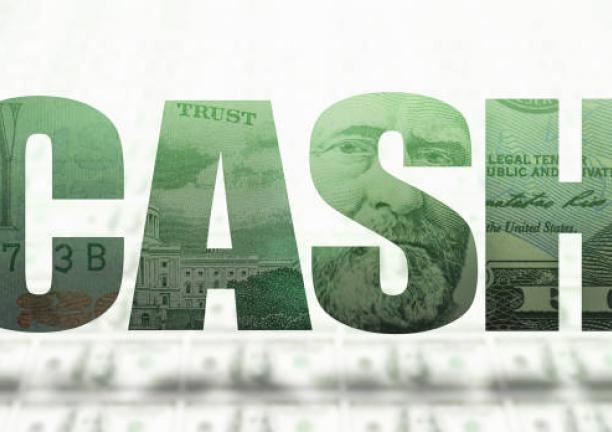The Bottom Line: Nine of the top 10 fixed income ESG ETFs would likely be classified as ESG-Focused funds under the SEC’s proposed rule amendments.
Top 10 sustainable fixed income ETFs and their expected SEC ESG-related classifications based on currently proposed rule amendments covering ESG funds
Integration Fund | ESG-Focused Fund | Impact Fund |
None | iShares ESG U.S. Aggregate Bond ETF (EAGG) | iShares USD Green Bond ETF (BGRN) |
iShares ESG 1-5 Year USD Corp Bd ETF (SUSB) | ||
iShares ESG USD Corporate Bond ETF (SUSC) | ||
iShares ESG Advanced Total USD Bd Market ETF (EUSB) | ||
Nuveen ESG US Aggregate Bond ETF (NUBD) | ||
Inspire Corporate Bond ESG ETF (IBD)# | ||
PIMCO Enhanced Short Maturity Active ESG ETF (EMNT)* | ||
IQ MacKay ESG Core Plus Bond ETF (ESGB) |
Notes of Explanation: *Fund is actively managed. #Name changed from Inspire Corporate Bond Impact ETF effective March 30, 2022. Top 10 universe based on Morningstar classfications. Assets as of May 31, 2022. Sources: Morningstar Dirrect and Sustainable Research and Analysis.
Observations:
- On May 25, 2022, the Securities and Exchange Commission (SEC) proposed two sets of rule amendments covering BDCs and registered investment companies that employ environmental, social, or governance (ESG) factors as part of their investment strategies. The first set of proposed amendments would require funds to include additional disclosures in their SEC filings depending on the extent to which ESG factors play a role in their investment decision-making processes. The second set of proposed amendments would, among other things, subject funds that include ESG-related language in their names to additional disclosure requirements.
- The SEC proposed three new classifications of ESG funds, each of which would be subject to varying disclosure requirements: Integration Fund, ESG-Focused Fund, and Impact Fund.
- An analysis of the application of the proposed disclosure rule to the ten largest sustainable or ESG-oriented fixed income ETFs, with net assets of $6 billion as of May 31, 2022 and representing 83% of the $7.3 billion segment, shows that (1) nine of the funds would be classified as ESG-Focused funds, and (2) the tenth fund, iShares USD Green Bond Fund (BGRN), may be classified as an ESG-Impact Fund. That said, there is some ambiguity that invites further clarification. On the one hand, the fund refers to ‘green” in its name and qualifies securities based on an issuer’s commitment to ongoing reporting of the environmental impact of the use of proceeds. On the other hand, the fund itself does not explicitly seek to achieve specific environmental outcomes or impacts. At minimum, the fund would qualify to be classified as an ESG-Focused fund.
- The regulation defines the three new classifications, as follows: A) Integration Fund is a fund that considers one or more ESG factors alongside other, non-ESG factors in its investment decisions, but those ESG factors are generally no more significant than other factors in the investment selection process, such that ESG factors may not be determinative in deciding to include or exclude any particular investment in the portfolio, B) ESG-Focused Fund includes any fund that utilizes ESG considerations as the main factor or consideration in selecting an investment strategy or in its engagement strategy with companies in which it invests. Specifically, an ESG-Focused fund will include a fund: a) with a name that indicates the fund takes ESG considerations into account, b) whose advertisements or marketing materials are explicit in using ESG as a “significant or main consideration,” c) that tracks an ESG focused index, d) that applies a screen to include or exclude certain stocks based on ESG consideration, or e) that has a policy of voting proxies in a way that would consider or encourage ESG-related goals or considerations. An ESG-Focused Fund would be required to provide an ESG Strategy Overview Table in its prospectus that includes an overview of the fund’s strategy, a description of how the fund incorporates ESG factors in its investment decisions and the fund’s proxy voting record and engagement activities. ESG strategy, the fund will be required to disclose how it voted on ESG-related proxies in its annual report, and C) Impact Fund is a fund that seek to achieve a specific outcome that is ESG-related. For instance, an Impact Fund may include a fund that invests intending to profit while “financing the construction of affordable housing units” or to “advance the availability of clean water”. An Impact Fund will be subject to the same disclosure requirements as ESG Focused Funds, and they must also include information that states in qualitative and quantitative terms: a) the progress made towards the fund’s stated impact, b) the time horizon that the fund utilizes to measure its impact, and c) the relationship between the impact the fund is trying to achieve and its financial returns.





